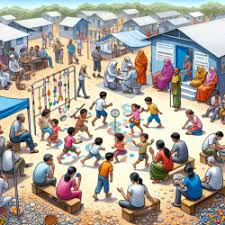Introduction: A Global Perspective on SRHR
As practitioners in the field of speech-language pathology, we often focus on the nuances of communication and cognitive development. However, a broader understanding of global health issues, such as sexual and reproductive health and rights (SRHR), can enrich our practice and contribute to holistic child development. The research article titled "Advancing Sexual and Reproductive Health and Rights in Low- and Middle-Income Countries: Implications for the Post-2015 Global Development Agenda" provides critical insights that can guide us in making informed, data-driven decisions.
Key Findings: Inequality, Quality, and Accountability
The research identifies three critical gaps in SRHR: inequalities in access, quality of services, and lack of accountability mechanisms. These gaps highlight the need for targeted actions to ensure equality, improve service quality, and establish robust accountability frameworks. As practitioners, understanding these global challenges can help us advocate for better policies and practices within our communities.
Implementing Research Outcomes: Practical Steps for Practitioners
- Advocacy for Equality: Advocate for equal access to SRHR services and information, particularly for marginalized groups such as women and adolescents in low-income settings. Encourage policies that remove barriers to access.
- Focus on Quality: Support initiatives that aim to improve the quality of SRHR services. This includes ensuring that services meet public health, human rights, and medical ethics standards.
- Promote Accountability: Encourage the use of accountability mechanisms to track progress and address inequalities. This can involve community participation in monitoring services and advocating for policy changes.
Encouraging Further Research
Practitioners are encouraged to delve deeper into the research findings and explore how they can be applied in their practice. By staying informed about global health issues, we can contribute to the broader discourse on SRHR and advocate for comprehensive policies that benefit all children.
Conclusion
Understanding the global landscape of SRHR and its implications for development can empower practitioners to make informed decisions that improve outcomes for children. By focusing on equality, quality, and accountability, we can advocate for better services and policies that support holistic child development.
To read the original research paper, please follow this link: Advancing sexual and reproductive health and rights in low- and middle-income countries: Implications for the post-2015 global development agenda.










